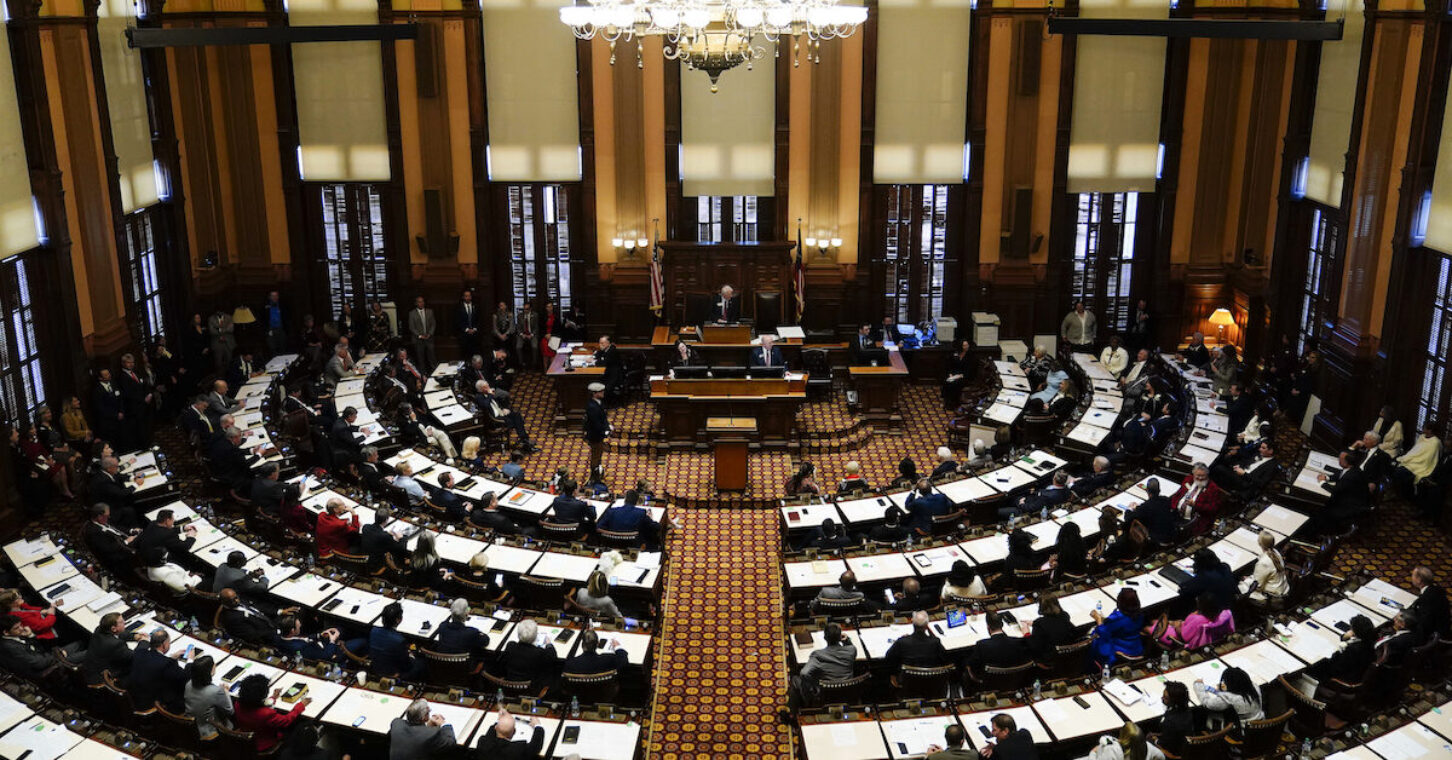
Let’s hope Georgia’s budget writers have read their F. Scott Fitzgerald. At least, some of it.
We don’t need them to buy things excessively, like Gatsby with his piles of shirts. Rather, they should review the state’s revenue picture with one of Fitzgerald’s well-known quotes in mind:
“The test of a first-rate intelligence is the ability to hold two opposed ideas in mind at the same time and still retain the ability to function.”
I’ve gone literary on y’all because of a dichotomy in the revenue figures for fiscal 2023, which ended June 30. The figures reported this past week show the state, against expectations, recorded a third straight multibillion-dollar annual surplus.
The state’s intake grew by $40 million over fiscal 2022 – which is barely more than 0.1% in the context of $33 billion in receipts, but nonetheless impressive. Fiscal 2022 had been a bumper year, with state revenues soaring on the backs of strong capital gains and corporate profits.
As the stock market and broader economy cooled over the past 12 months, revenues were expected to follow suit. They did not.
In context, revenues rose even higher than they appear. That’s because Gov. Brian Kemp and members of the General Assembly suspended the motor fuel tax for much of the past 12 months amid high gasoline prices. That led to an annual reduction of nearly $765 million in that particular revenue stream. Excluding the motor fuel tax, revenues in fiscal 2023 were higher than a year earlier by almost 2.6%, not 0.1%.
But lawmakers budgeted for lower estimates, meaning the surplus could be in the vicinity of $5 billion. (The full year’s spending has not yet been totaled up.)
The Associated Press, citing similarly large surpluses in 2021 and 2022 and noting the budget for 2024 remained cautious, suggested lawmakers could soon have an extra $10 billion on their hands. Those who favor larger government spending are redoubling their calls to increase taxpayer-funded services, as if the good times will never end.
But if the first idea to hold in mind here is that state coffers have never been so flush, the second thought is certainly opposed to it: The trend is heading in the wrong direction.
You see, monthly revenues for June were slightly lower than a year ago. The same was true in May, and in April, and in March. That’s a trend.
Here again, the motor fuel tax suspension is muddying the waters. But this time, the picture gets worse: June revenues excluding the motor fuel tax, which was suspended a year ago but is now reinstated, were down by about 7%.
Then there are the continuing effects of inflation, which nationally remains stubbornly high when we look at so-called core inflation (excluding the volatile prices of food and energy). Considering all this, the economic picture is hardly reassuring.
Should these trends eventually result in a long-predicted recession, the double whammy of slow growth and lingering inflation could be a hard blow. As always, it would mean more demand for state services such as Medicaid, but less money to pay for it.
So, is this any time to expand state spending more generally? Certainly not.
The question is what to do instead.
Lawmakers missed a great opportunity this year to accelerate the tax cut they passed in 2022, but which does not take effect until 2024. This was a rare opportunity to lower rates without permanent implications, since they’d already decided to cut the rate in the long term. But they didn’t seize it.
Another tax rebate is a possibility, and it has the benefit of being as short-term in nature as the inflated revenues. On the down side, and unlike a rate cut, it doesn’t stimulate any additional growth – which would be nice to have if we’re facing a recession.
Alas, there will always be tough decisions for lawmakers to take on this side of paradise.